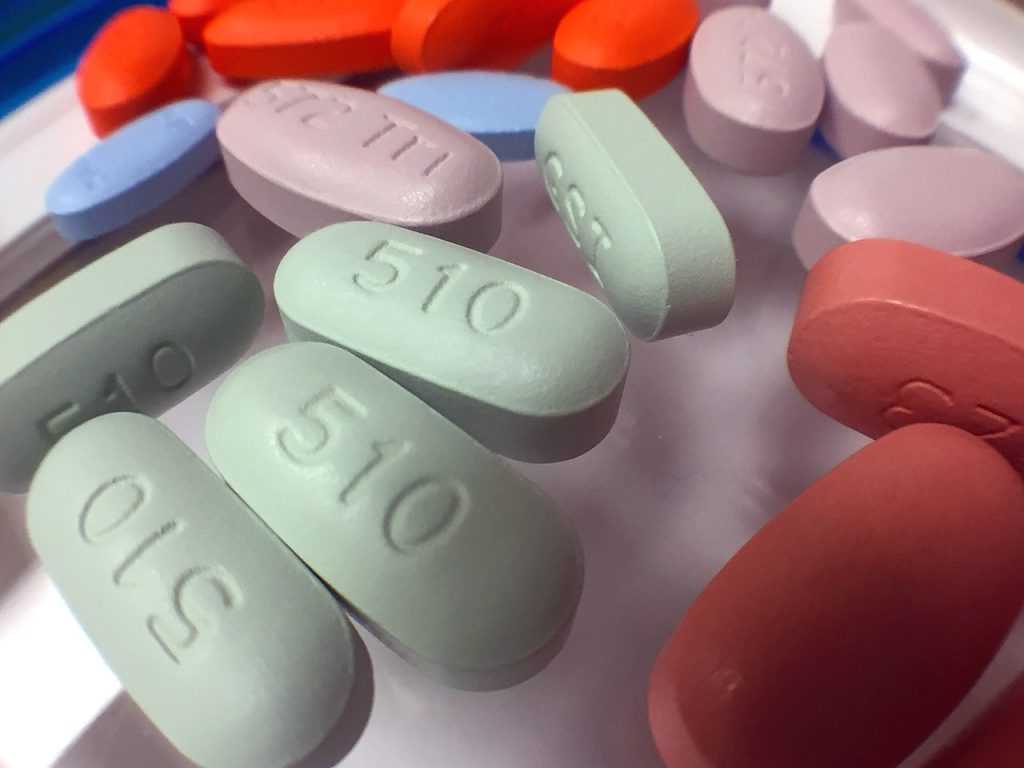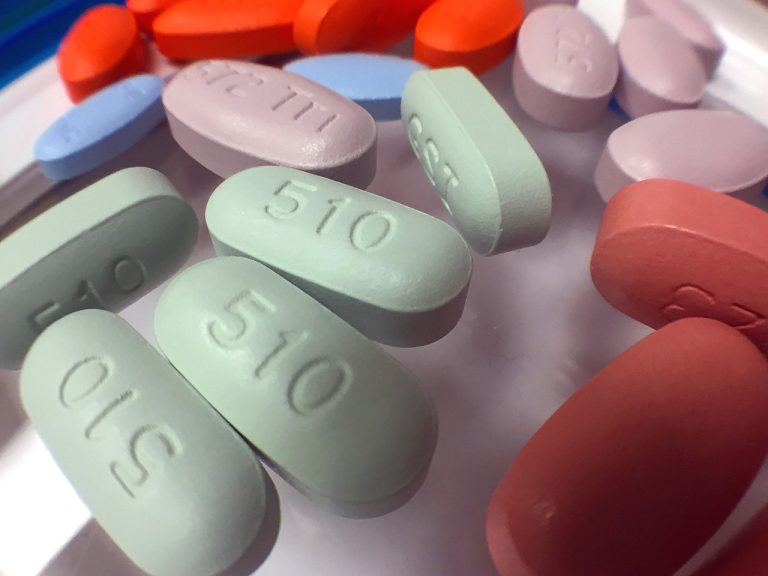When Anna Aryabinska fled Kiev in March 2022 with her ex-partner's children, she had no idea she would end up supporting not only his family, but also many HIV-positive Ukrainians in Poland. Until the full-scale Russian invasion, Aryabinska was active in the Ukrainian organization Positive Women, which supports women living with HIV. She is now one of a group of volunteers who are helping fellow Ukrainian refugees continue to take HIV medications, as well as integrate into the healthcare systems of European countries that have very different epidemiological patterns and treatment standards.
Ukraine suffers from the second largest HIV epidemic in Europe after Russia, with an estimated 260,000 people infected with the disease. According to the United Nations High Commissioner for Refugees, more than six million Ukrainians are now refugees due to the large-scale Russian invasion. In Poland, the top destination, 1.6 million Ukrainians have applied for temporary protection schemes (the vast majority of them women and children, as martial law prohibits most men aged 18 to 60 – like Ariabinska's former partner – from leaving Ukraine). On top of housing, employment and education issues, people living with HIV face an additional pressing difficulty: how to get the antiretroviral medications they need every day to suppress the virus.

A variety of antiretroviral medications used to treat HIV infection. Credit: NIAID Source: Wikimedia Commons
Difficult adjustment
Anna Aryabinska left Kiev in March 2022, when Russian forces were only a few kilometers from the city. She was better prepared than many, taking with her a three-month supply of antiretroviral drugs and a medical note from Kiev doctors. When she arrived in Poland, she immediately registered at the local AIDS center. Since then, it has guided others through a similar process as part of an online service, HelpNow, supported by the Ukrainian NGO Alliance for Public Health.
“People are in a state of panic,” she says. “And they don't have anyone else to ask.” HelpNow has set up centers in Poland, Germany and the Baltics, and has helped Ukrainian refugees in 47 countries with online support, as well as in-person assistance in major refugee centers such as Warsaw. HelpNow volunteers have teamed up with local NGOs to help refugees who are confused by practical issues such as finding translators for medical records or doctor's appointments, obtaining necessary documents, or simply getting to the nearest AIDS clinic – there are only 16 in Poland. , compared to 300 in Ukraine.
HIV is not talked about much in Poland, a conservative country that rejects sex education and gay rights. There are no prevention programs for populations at higher risk, such as drug users or gay men, and the disease is highly stigmatized. Only four people in Poland have publicly announced in the media that they are HIV-positive.
This came as a shock to Ukrainian activists like Aryabinska, who have been fighting for decades of HIV awareness and tolerance. “I have the feeling that I am back in the 1990s, compared to Ukraine,” Aryabinska said. “There are some organizations working here, but the general population doesn't know anything.”
About 29,000 cases of HIV infection have been recorded in Poland since the epidemic began in the 1980s. New registered HIV cases have been increasing since before the onset of the COVID-19 pandemic in 2020, although they are only now showing up in national statistics due to the disruption caused by the pandemic. But because no one talks about it publicly, few people are aware of the existence of HIV cases, NGOs say Social Education Foundation (Foundation for Social Education), which has been working for 20 years in the field of HIV treatment in Warsaw.
HIV medical help in Poland is free and available to everyone, and Ukrainians who have started treatment in Poland say that medical staff often have a better attitude towards them than their Ukrainian counterparts. However, testing is limited to 28 voluntary counseling and testing centres, and prevention is more limited. Only five percent of the total national HIV budget is allocated to prevention services, and the vast majority of this five percent goes to testing.
At the beginning of the total invasion, Social Education Foundation They received requests for assistance from Ukrainian migrants who were already in Poland and could no longer obtain new stocks of antiretroviral drugs, which they used to collect from Ukraine every three months. The NGO helped place these people in treatment programs in Poland and collaborated with HelpNow volunteers to help the influx of new refugees, often meeting them directly from trains arriving from cities under siege.
“People have only one bag, they don't have anything, they don't know what to do, and of course at first they try to find a safe place, and then they ask about treatment,” said Magdalena Ankerstegen-Barczak, director of the center. Social Education Foundation, Tell me. In the beginning, Polish medical staff sometimes also needed support to deal with a new group of patients. For example, in Ukraine there are many women infected with HIV, while sick women and children are almost unknown in Poland.
“We're a new experience for doctors here as well.” Now Polish doctors call me to ask me how to talk to these patients; For example, what to say to convince them to keep coming [for treatment]“Aryabinska says.
Trauma and fear of stigma
The HIV treatment system used in EU countries also differs from the one in Ukraine. Poland has passed legislation to ensure that Ukrainian refugee patients can continue to use the antiretroviral medications they are accustomed to without interruption, and has made other amendments such as allowing longer stocks of medications at home and exchanging patient information with Ukrainian health facilities. Poland now provides antiretroviral treatment to more than 3,000 Ukrainians, according to the National AIDS Center.
But the psychological barriers patients face in treatment can be difficult to overcome. Many refugees do not want to disclose their health condition, for fear of stigma, but also out of hope or perception that their situation is temporary and that they will return home soon. They suffer from depression and loss of social structures such as family and work, can become exhausted or indifferent to their health, and easily fall back on adherence to daily treatment.
According to Ankerstejn-Barczak, many Ukrainians who are now starting treatment in Poland are delaying treatment, and are turning to doctors when HIV infection is already at an advanced stage and causing many health complications. Some may not have been aware of their status, but HelpNow volunteers say refugees are reaching out to them admitting they haven't received any treatment for months due to disruption in their lives, or fear that if their status is revealed, they might be exposed, for example. Evicting them from rental properties.
As someone who has lived openly with HIV for many years and worked on a crisis hotline in Ukraine, Aryabinska is well-placed to offer support. It's an exhausting 24-hour job, but it also helps her deal with the trauma of leaving her home.
“This work also kept me sane, knowing that people were suffering from such problems and pain, but I was able to help them,” she says.
There is widespread social stigma against HIV in Ukraine as well. But there is also a large-scale prevention, diagnosis and treatment system, led by NGOs in partnership with government health services, designed to reach and support vulnerable groups. Another difference between Ukraine and Poland is the approach taken by Ukraine in managing cases related to HIV and other socially serious diseases. Social workers help clients not only to initiate and adhere to treatment for HIV, tuberculosis, or hepatitis, but also to resolve a range of related medical, psychological, and social problems. Despite Russian bombing and looting of healthcare facilities and infrastructure in Ukraine, health and social workers still in the country have continued to support their clients who have left, sending them medicines and monitoring their health remotely.
A difficult transitional period
In addition to visiting his clients who are still in the eastern Ukrainian city of Kryvyi Rih, social worker Serhiy Bedvaliuk from the Kryvyi Rih Public Health Foundation, an NGO, has been distributing and sending a six-month supply of antiretroviral medications, with an accompanying letter from the foundation. . Healthcare facility for its clients in Poland, Germany and Turkey. “They're afraid to reveal their situation, so it's easier that way,” he says.
Patients use private clinics abroad to measure their health and disease indicators, such as CD4 and viral load, and send the results back to doctors in Ukraine via online messaging programs. After six months, Bedvaliuk encourages his clients who are still abroad to enroll in the health care systems in their new place. “We have no right to force them to do this, but we cannot support them forever,” he adds.
Although the Ukrainian case management system has been invaluable in supporting patients through a difficult transition period, it has a downside. Ukrainian volunteers, social workers and medics say Ukrainian refugees can be very passive when it comes to solving problems abroad because they are used to relying on their case managers.
'Case management is the process of leading people by the hand. “In some ways it's great, but in others it's problematic,” says Maria Ralko, a HelpNow volunteer in Poland. “Now when customers travel abroad, they sit and wait for someone to help them.”
However, other European countries could learn something from Ukraine's approach to HIV. “Maybe the Ukrainians will change the medical systems in Europe,” says Aryabinska. “In Poland there is no social medical support, and people do not understand what we do. But now they are starting to ask us for expertise, and comparing service delivery systems.
At the same time, Aryabinska used her experience in Ukraine to create the first self-help group for people living with HIV and members of vulnerable groups in Poland. “I really missed the face-to-face meetings and the sense of community,” she adds. “People come from all over Poland, at their own expense, so I see that I am not the only one who needs this.
Reporting for this article was done during an assignment for the Public Health Alliance, documenting the organization's programs in response to the war in Ukraine.

